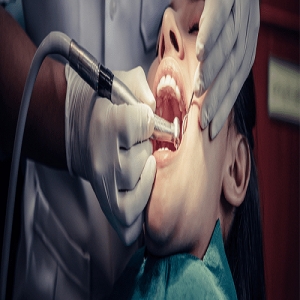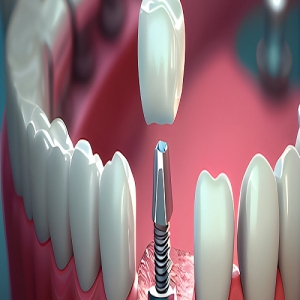Root Canal Therapy (RCT)

Root Canal Therapy (RCT)
Root canal therapy (RCT), commonly referred to as a root canal procedure, is a dental treatment performed to save and repair a severely infected or damaged tooth by removing infected or inflamed pulp tissue from the inside of the tooth and sealing the root canal system to prevent further infection.
Here's an overview of the root canal therapy process:
-
Diagnosis: The need for root canal therapy is typically determined by a dentist during a dental examination or in response to symptoms such as severe toothache, sensitivity to hot or cold, swelling, or discoloration of the tooth. X-rays may be taken to assess the extent of damage and determine if the infection has reached the tooth's pulp chamber and root canals.
-
Anesthesia: Before beginning the root canal procedure, the dentist administers local anesthesia to numb the affected tooth and surrounding tissues, ensuring the patient's comfort throughout the treatment.
-
Access Opening: A small access hole is drilled into the top of the tooth to gain access to the pulp chamber and root canals. This allows the dentist to remove the infected or inflamed pulp tissue and thoroughly clean and disinfect the inside of the tooth.
-
Cleaning and Shaping: Using specialized instruments called files, the dentist carefully cleans and shapes the root canals to remove any remaining bacteria, debris, and infected tissue. The canals are flushed with antibacterial solution to disinfect and irrigate the area.
-
Filling and Sealing: Once the root canals are cleaned and shaped, they are filled with a biocompatible material called gutta-percha to seal off the canals and prevent recontamination. The access hole in the tooth is then sealed with a temporary or permanent filling to restore its structure and integrity.
-
Restoration: After the root canal therapy is completed, the tooth may require additional restoration to strengthen and protect it from further damage. This may involve placing a dental crown or filling to restore the tooth's function and appearance.
Root canal therapy is highly effective in saving teeth that would otherwise need to be extracted due to severe infection or damage. It relieves pain, eliminates infection, and allows the natural tooth to be preserved, maintaining the integrity of the smile and surrounding teeth. With proper care and maintenance, a tooth treated with root canal therapy can function normally for many years.
It's essential to follow the dentist's post-treatment instructions and maintain good oral hygiene habits to ensure the success and longevity of the root canal treatment. Regular dental check-ups and preventive care are also important for monitoring the health of the treated tooth and preventing future dental problems.
Send Enquiry





